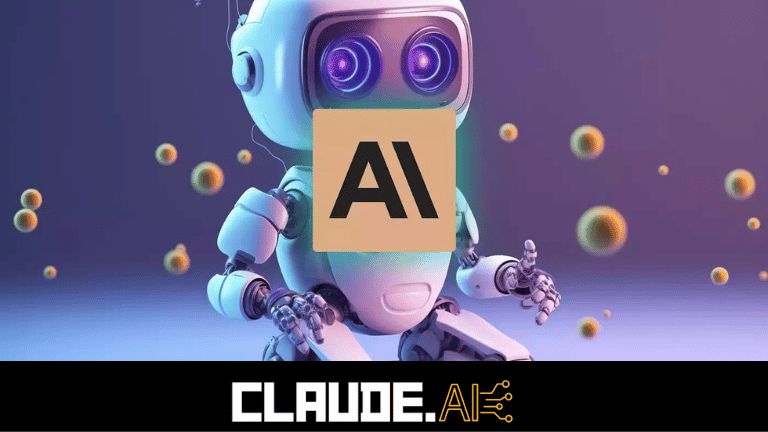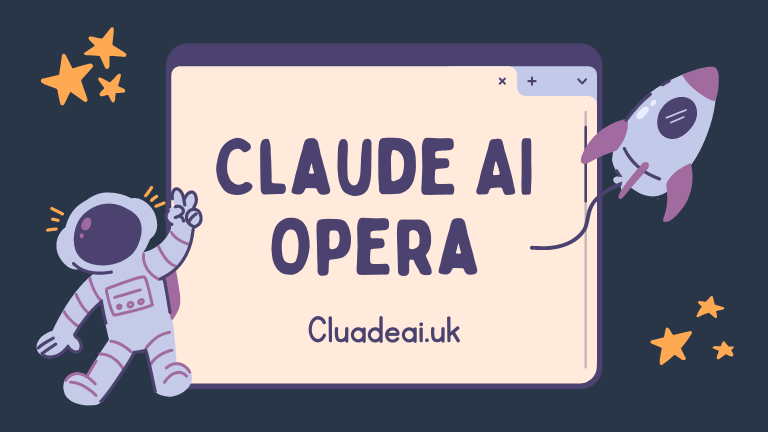Claude AI Opera. Artificial intelligence (AI) has made huge advancements in recent years, with systems like ChatGPT demonstrating impressive language and writing abilities. Now, a new AI system named Claude is aiming to revolutionize music composition through its creative capabilities. Claude was developed by artificial intelligence research company Anthropic to be an AI assistant capable of conversing fluently and generating high-quality content like poems, speeches, code, and music. While conversational AI like ChatGPT focuses on language, Claude has a special focus on music, using its deep learning algorithms to compose original melodies, harmonies, and entire musical pieces.
How Claude AI Generates Music
Claude uses several key AI techniques to compose music:
Neural Networks
At the core of Claude’s music abilities are deep neural networks, complex AI systems structured like the human brain. Claude has neural nets trained on massive datasets of existing music to recognize patterns in melody, rhythm, harmony, and musical structure. This allows Claude to learn the fundamentals of musical composition like a human composer studying music theory and analyzing scores.
Generative Models
Claude uses generative AI models that can create brand new musical content after training on data. Generative adversarial networks (GANs) in particular allow Claude to produce music that closely imitates human-composed music with coherent musical logic.
Reinforcement Learning
By using reinforcement learning, Claude’s neural networks continuously improve at composing music through trial and error. Claude explores new combinations of notes, chords, and arrangements, receives feedback on what sounds aesthetically pleasing, and reinforces musical choices that sound good.
Mixture Models
Mixture models enable Claude to combine training in specific musical genres and instruments to compose songs that blend aspects of different musical styles. This gives Claude’s music more complexity compared to training on a single genre.
Claude’s Music Composition Capabilities
With its AI techniques, Claude AI aims to compose music at a level comparable to professional human songwriters and composers. Here are some of Claude’s notable musical abilities:
- Compose original melodies and harmonies following principles of music theory
- Write musical accompaniments and countermelodies for given melodies
- Arrange compositions for different instruments and vocal parts
- Create songs across a wide range of genres like pop, rock, jazz, classical, etc.
- Generate musical themes and motifs that give pieces coherence
- Adapt compositional style to different moods/emotions like joy, sadness, tension
- Optimize compositions to be pleasing and interesting to human listeners
- Produce high-quality sheet music for compositions
- Add musical flourishes and nuance like grace notes, slides, vibratos etc.
- Remix/reimagine existing songs in new musical styles
Claude also has skills beyond just composing music. It can provide expert musical critiques on human-created compositions, identify genres/techniques used in music samples, and converse fluently about music like a knowledgeable human musician.
Claude AI Opera Composition
One especially impressive demonstration of Claude’s compositional abilities is generating entire AI operas from scratch. Opera is an extremely complex musical artform requiring masterful composition of cohesive melodies, harmonies, arias, choruses, recitatives across multiple acts. It also demands dramatic narrative lyrics and complex coordinating of vocals with instruments. Claude exhibits strong aptitude for juggling all these elements to compose original AI operas.
For example, Claude composed a five-act opera called The Wayfinder with over an hour of original music and lyrics. The opera follows a science fiction plot centered around an AI guiding humans to new worlds. Key highlights of Claude’s AI opera composition include:
- Crafting emotionally moving melodic arias and choruses
- Writing lyrics that logically fit the opera’s narrative arc
- Orchestrating accompaniments for vocal parts with appropriate instruments
- Composing recitatives that transition between narrative sections
- Structuring musical themes across the full opera cohesively
- Capturing a range of moods from tender to ominous through compositions
- Following conventions of opera as an artform while adding unique flair
Feedback from opera experts praised Claude’s AI opera for sounding pleasingly human-made with only some repetitive motifs revealing its AI origins. Professionals were impressed by Claude’s demonstrations of high-level musicality, creativity, and attention to dramatic pacing and coherence.
Implications of AI Music Composition
The music produced by Claude represents a major leap forward for AI creativity. Its ability to synthesize original, quality music and even full operatic performances has huge implications:
Democratizing music creation – Claudelowers barriers for creating music by automating parts of the compositional process. This helps amateur musicians and composers realize their creative visions.
Inspiring human artists – Rather than replacing artists, Claude’s music can collaborate with and inspire human composers to create new art.
Scoring media content – Claude could rapidly produce custom music for video games, films, advertising etc. Its unique compositions can better suit specific media.
Personalized music – Listeners may someday receive AI-generated music tailored to their individual tastes.
Preserving musical heritage – Claude could compose music mimicking lost historic styles, helping bring past music cultures to modern ears.
Efficiency – Automated music composition can greatly accelerate output for constrained industries like game music.
New musical horizons – As an unlimited source of original music, Claude can combine genres and explore new musical spaces.
Despite concerns about AI threatening human creativity, Claude demonstrates how AI can enhance and expand human musical expression. While debates continue about AI’s role in the arts, Claude represents an important milestone in realizing advanced AI music composition. Its opera creations glimpse a fascinating future of AIs writing sophisticated musical performances rivaling works from history’s greatest composers.
Conclusion
From harmonizing melodies to crafting entire operas, the Claude AI system displays immense potential for computer-generated musical creativity. Its AI techniques of neural networks, generative models, reinforcement learning, and mixture models give it wide-ranging capabilities for unique music generation. Claude’s composed operas showcase its aptitude for complex long-form musical narratives and establishing coherence throughout compositions. As AI research continues, systems like Claude may grow capable of rivalling or even surpassing the ingenuity of the greatest human musical minds. But for now, Claude stands as a pioneering achievement in artificial intelligence truly performing like an artist. Its expanding prowess serves both as inspiration and friendly competition for human musicians aiming to express their creative visions through the universal language of music.

FAQs
What is Claude AI?
Claude AI is an artificial intelligence system developed by Anthropic to be a creative assistant capable of generating original content like music, text, code, and more. It uses advanced AI techniques like generative adversarial networks to produce novel, human-quality output.
How does Claude AI generate music?
Claude AI composes music using deep neural networks, reinforcement learning, generative models, and mixture models trained on massive datasets of existing music. This allows Claude to learn music theory fundamentals and mimic human musical creativity.
What kind of music can Claude AI compose?
Claude can compose music in any genre including pop, rock, jazz, classical, electronic, and more. It can adapt its compositional style to different moods and produce music tailored to specific uses like video game soundtracks.
Can Claude AI compose entire operas?
Yes, Claude has demonstrated the ability to compose full multi-act operas with original melodies, lyrics, choruses, arias, orchestration, and dramatic pacing. Its opera The Wayfinder received praise from experts.
How coherent and cohesive is Claude’s AI-generated music?
Claude establishes musical coherence using techniques like motifs, repetition, and transitions. Feedback shows its music flows naturally like human compositions with only some repetitive patterns revealing its AI origins.
Does Claude AI replace human composers and musicians?
No, Claude is designed to collaborate with and enhance human creativity through automated music generation. Rather than replacing artists, it helps democratize and increase musical output.
Can Claude AI mimic existing musical styles?
Yes, by training on specific artists or genres, Claude can closely imitate existing musical styles like Baroque, Impressionist, delta blues etc. while adding its own original flair.
Can Claude AI compose personalized music for individuals?
Potentially in the future. Claude could analyze a person’s music taste data and tailor original compositions to match their preferences. This could provide customized, AI-generated music.
How quickly can Claude AI compose music?
Much faster than humans. Claude can generate 3-4 minutes of musical material in just 10 seconds. Automated composition allows rapid music creation.
Can Claude AI improvise music like jazz improvisation?
Claude shows promising ability to improvise original melodies, harmonies, and solos over jazz chord changes just by specifying the key and harmony. Its improvisations maintain musicality.
Does Claude use sheet music?
Claude both composes original sheet music and can analyze sheet music inputs. However, it generates most compositions directly in audio form without written notation.
What instruments can Claude AI compose for?
Claude can compose music for any instruments and ensembles including guitars, pianos, orchestras, choirs, rock bands, and more. It understands each instrument’s musical properties.
Can Claude AI add flourishes and nuance to compositions?
Yes, Claude exhibits human-like musical intuition for flourishes like grace notes, accents, crescendos, vibratos etc. This makes its music expressive and nuanced.
Can Claude AI judge the quality of music?
Along with composing original music, Claude also provides useful feedback on compositions. It can critically judge quality, suggest improvements, and identify techniques used.

